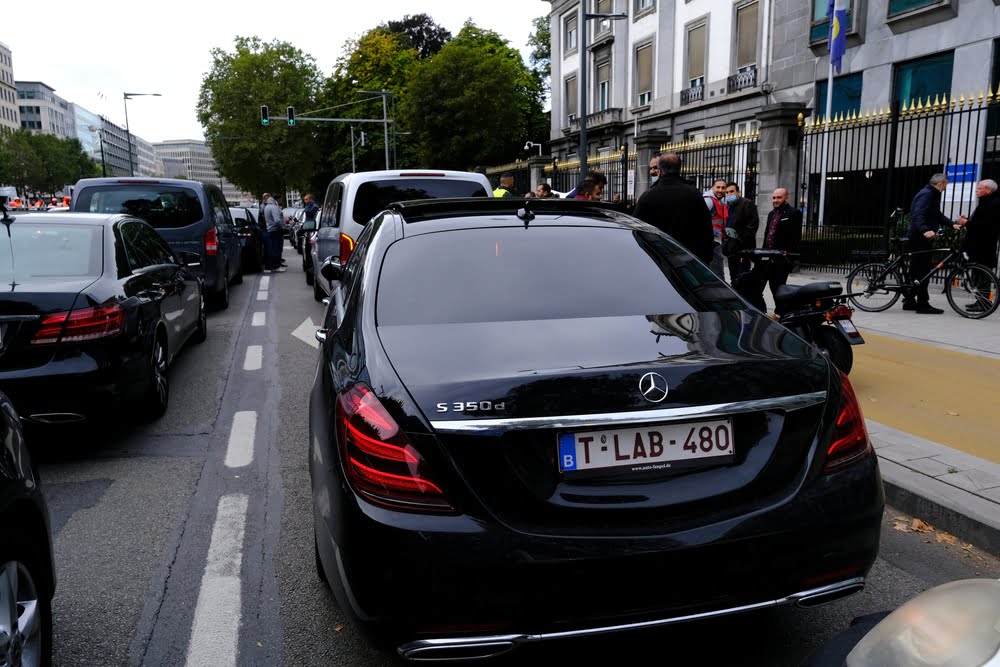The Brussels government reached an agreement this morning on an emergency solution for Uber drivers. If all goes well, they should be able to drive back to Brussels in mid-December. There are some conditions attached to this, but the reactions are mainly positive. The Brussels government had to find a solution for the more than 1000 Uber drivers who could no longer drive since the end of November because Uber had taken the app offline. That solution has now been found in the lap of the government. PS and Ecolo were diametrically opposed to the Dutch-speaking parties and Défi. But Prime Minister Rudi Vervoort (PS) has found a consensus on a temporary ordinance that could allow Uber drivers to drive back.
According to BRUZZ of the non-profit association Vlaams-Brusselse Media, there are some conditions attached to this. The drivers must perform at least twenty hours a week. It therefore only concerns drivers who derive their main income from Uber. In addition, they must have applied for their license before January 15 this year. Furthermore, the drivers are only allowed to work with an electronic reservation and not to pick up customers. They are also not allowed to use the bus lanes or taxi ranks.
The limousine companies must also be transparent about the operators and the drivers who drive the cars and about the general conditions of use and they must have their registered office in Belgium. The emergency ordinance is valid until the definitive taxi law comes into effect. The government wants to land with this before next summer at the latest. According to Prime Minister Vervoort, the proposal respects the court rulings of recent years about platform taxis.

Europese Commissie
The European Commission has meanwhile proposed plans to clarify the status of platform workers, such as the bicycle couriers of Deliveroo or Takeaway.com and the Uber drivers. If a company meets at least two of five Criteria answers, it is automatically considered an employer and who works for it as an employee.
It is almost impossible to count the number of lawsuits about the status of these platform workers. Just think of the recent decision of the Brussels Court of Appeal, which prevented drivers from working with the Uber app. In order to clarify the determination of that status and to give the right employment and social rights to those who are registered as an employee, the Commission is therefore launching a new directive. It will now be discussed by the European Parliament and the Council. Once the directive is adopted, EU member states have two years to transpose the directive into national law.

